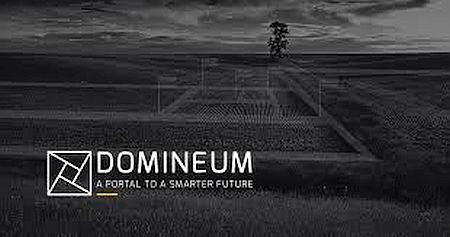As blockchain technology is taking the market by storm and creating exponential growth, Africa would not be exempted. Delivering Blockchain-as-a-Service (BaaS) and SaaS solutions designed to increase the efficiency of marine service and real estate services for land departments and their related government agencies, blockchain startup Domineum and its founder, serial entrepreneur Geoffrey Weli Wosu, also managed to create more than US$5 million for African governments during 11 months in 2019.

What makes blockchain so exciting? Blockchain as a data structure, immutability and tamper detection, data protection, distributed ledger technology, relative user anonymity, and promise of doubling annual IT spend, to name a few. Blockchain technology is already changing the way many segments operate. Statistics show the way: the blockchain market is expected to grow from US$1.2 billion in 2018 to US$23.3 billion in 2023, a compound annual growth rate (CAGR) of 80.2%.
Blockchain technology allows users to participate in peer-to-peer transactions without involving any central mediators, so Banking, Financial Services, and Insurance (BFSI) emerged as the early adopter. But the increasing focus of global companies towards investing in blockchain together with the rising interest of public and government authorities in research and the regulatory approvals of products in the market has all but cemented the expansion of blockchain in the years ahead.
Explains Vitalik Buterin, co-founder of Ethereum, “Whereas most technologies tend to automate workers on the periphery doing menial tasks, blockchains automate away the center. Instead of putting the taxi driver out of a job, blockchain puts Uber out of a job and lets the taxi drivers work with the customer directly.” Kenneth C. Griffin, Citadel founder and billionaire, says “Blockchain technologies will change transactions in a broad way.”
The digital cash system of this technology, with its underlying technology, could be extremely beneficial. It is to this end that many believe the true value of this revolutionary technology will be felt foremost across the developing world. Many issues could potentially be solved with a few key principles inherent to the blockchain, such as transparency, and decentralization; from elections to international remittance, as well as energy services and alternatives to banking.
As a distributed ledger technology company, Domineum Blockchain Solutions was established to assist governments and companies integrate blockchain into their operations. Headquartered in London, with an R&D unit in San Francisco, a technology resource centre in Tallinn, and current operational base in Nigeria and Sierra Leone, Domineum aims to disrupt several sectors in the emerging markets and leapfrog the current infrastructure with distributed ledger, or blockchain, technology.
Domineum has been a major developer and provider of enterprise-level systems designed to help government agencies, financial institutions, real estate and marine authorities achieve the agility and capability needed to compete in current, and future, markets. In 2019, Geoffrey and Domineum signed two strategic Government alliances, with Sierra Leone and Nigeria’s Abia State Government, and produced revenue of more than $5 million within 11 months for these Government bodies.
Geoffrey studied Business (2006) and Law (2009) at the University of Bolton in the UK, where he’s an Associate Member of the British Computer Society (AMBCS), and has authored papers on “E-Government Solutions for the Developing World”, “How to Simplify the Work of Governments in Developing Countries”, and “Combining Blockchain and AI to Grow the Global Digital Economy”. (ref: academia.edu).
No stranger to the markets, Geoffrey is also a co-founder of Voguepay.com, a payment processing platform established in 2012 with over 100,000 global merchants today; and an investor in Analytics Intelligence, an artificial intelligence (AI) technology start-up that provides solutions for data collection and analysis to a wide variety of customers in Europe, America and Africa.














